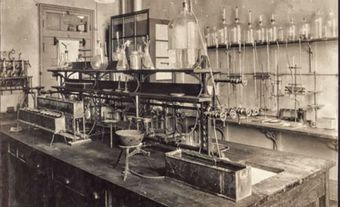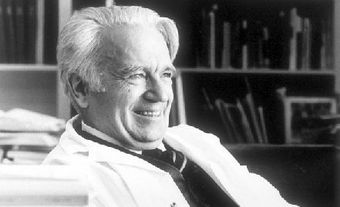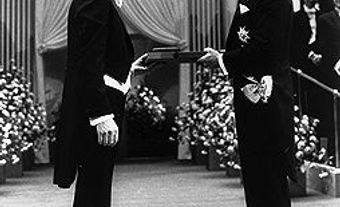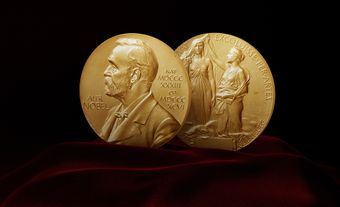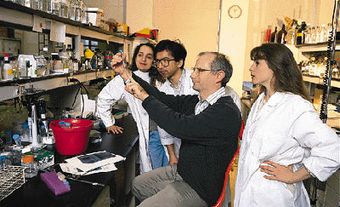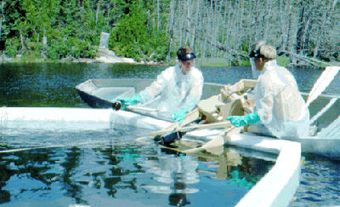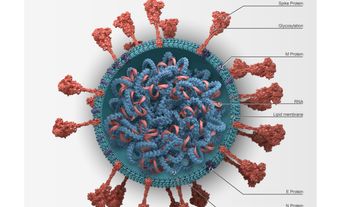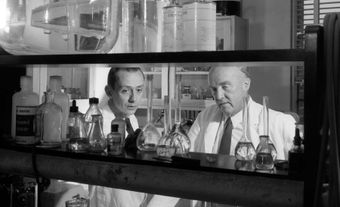Sidney Altman, biochemist, molecular biologist, educator (born7 May 1939 in Montreal, QC; died 5 April 2022 in Rockleigh, NJ). Altman was a dual citizen of Canada and the United States (see Canadian Citizenship). His childhood delight in science culminated in his sharing the Nobel Prize in Chemistry with Thomas R. Cech in 1989 (see Nobel Prizes and Canada; Chemistry).
Sidney Altman
Sidney Altman, biochemist, in Paris, France, 1999.
(photo by Louis Monier/Gamma-Rapho via Getty Images)
Education
After starting his scientific career with a BSc in physics (1960) from the Massachusetts Institute of Technology, Altman started graduate work in physics at Columbia University, but dropped out when disheartened by the death of a friend. After a brief career in editing and writing, he began a PhD thesis at the University of Colorado, moving with his supervisor, Leonard Lerman, to Nashville, Tennessee, to complete his thesis at Vanderbilt University. Altman obtained his PhD in biophysics in 1967. Further studies were at Harvard University and then with Francis Crick (co-discoverer of the structure of DNA) and others at Cambridge University (see Genetics; Molecular Biology).
Career
In 1971, Sidney Altman was hired as assistant professor at Yale University, where he advanced to professor (1980), chair of the Department of Biology (1983-85) and dean of Yale College (1985-89) (see Biology). After serving as dean, he returned to his role as fulltime professor. Altman retired in 2015.
Nobel Prize
Independent, seemingly unrelated work by Sidney Altman's research team at Yale University and Thomas R. Cech's team at University of Colorado in combination led to the discovery that RNA (ribonucleic acid) could act as both a molecule and a biocatalyst ( see Molecular Biology). This overturned the long-held belief that all enzymes were proteins and showed RNA to be more than a mere information carrier. This finding provided a "missing link" as to how life could have evolved in the chemical mix of the Earth's primordial seas and has wide-ranging implications for both basic and applied chemical and genetic research, with particular promise as a tool for fighting viruses. That neither research team anticipated their ultimate finding yields an important example of the necessity of basic research in providing the fundamental background for goal-oriented studies.
Altman and Thomas R. Cech were jointly awarded the 1989 Nobel Prize in Chemistry for "for their discovery of catalytic properties of RNA." (See also Nobel Prizes and Canada).
Select Honours and Awards
- Nobel Prize in Chemistry, Royal Swedish Academy of Sciences (1989)
- Honorary Doctor of Science, McGill University (1991)
- Honorary Doctor of Laws, Concordia University (2003)

 Share on Facebook
Share on Facebook Share on X
Share on X Share by Email
Share by Email Share on Google Classroom
Share on Google Classroom
